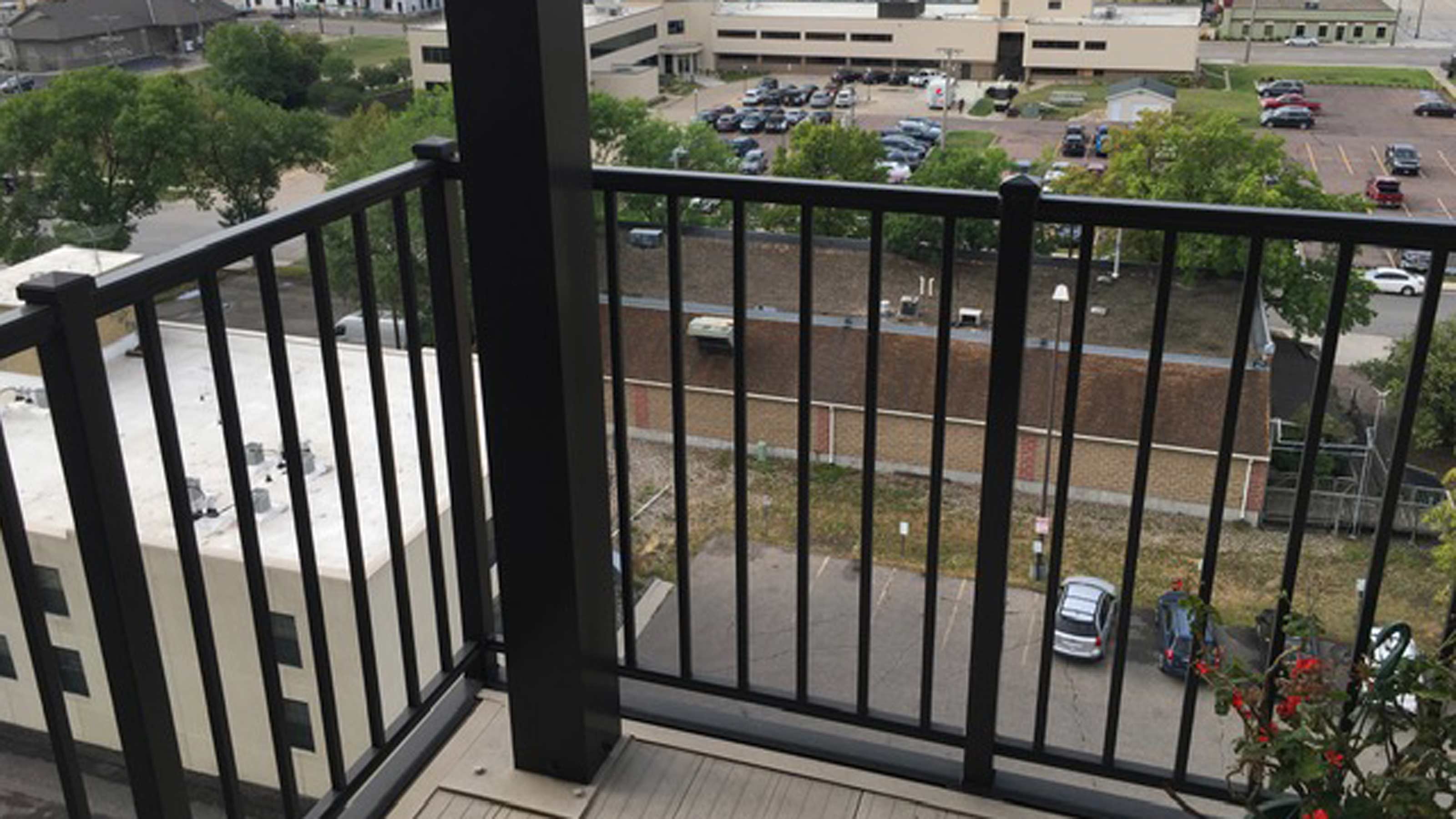Could Surfside Happen to You? What Concerned Condo Owners Should Do Now
If you live in a high-rise condo, you can – and should – take an active role in protecting yourself and your investment. Here are five steps that could help you sleep better at night.


Profit and prosper with the best of Kiplinger's advice on investing, taxes, retirement, personal finance and much more. Delivered daily. Enter your email in the box and click Sign Me Up.
You are now subscribed
Your newsletter sign-up was successful
Want to add more newsletters?

Delivered daily
Kiplinger Today
Profit and prosper with the best of Kiplinger's advice on investing, taxes, retirement, personal finance and much more delivered daily. Smart money moves start here.

Sent five days a week
Kiplinger A Step Ahead
Get practical help to make better financial decisions in your everyday life, from spending to savings on top deals.

Delivered daily
Kiplinger Closing Bell
Get today's biggest financial and investing headlines delivered to your inbox every day the U.S. stock market is open.

Sent twice a week
Kiplinger Adviser Intel
Financial pros across the country share best practices and fresh tactics to preserve and grow your wealth.

Delivered weekly
Kiplinger Tax Tips
Trim your federal and state tax bills with practical tax-planning and tax-cutting strategies.

Sent twice a week
Kiplinger Retirement Tips
Your twice-a-week guide to planning and enjoying a financially secure and richly rewarding retirement

Sent bimonthly.
Kiplinger Adviser Angle
Insights for advisers, wealth managers and other financial professionals.

Sent twice a week
Kiplinger Investing Weekly
Your twice-a-week roundup of promising stocks, funds, companies and industries you should consider, ones you should avoid, and why.

Sent weekly for six weeks
Kiplinger Invest for Retirement
Your step-by-step six-part series on how to invest for retirement, from devising a successful strategy to exactly which investments to choose.
In the wake of the shocking collapse of a high-rise condo building in Surfside, Florida, on June 24, condo owners nationwide are probably asking themselves: How safe am I? Is my condo board doing all it should be doing to ensure the structural integrity of my building?
Ninety-eight people died in that collapse, so these are valid concerns — especially considering the age of many structures today. In the Miami region alone, two out of every three condominium buildings are more that 30 years old — the age at which most condominium buildings can no longer delay making critical repairs — according to a report in The Wall Street Journal. Nationwide, more than half of all condominium buildings have stood for at least three decades. By one expert’s estimate reported in the July 23, 2021, issue of The Week, about one-third of condominium associations have 30% or less of the money needed to prepare for big-ticket projects.
Most associations are managed by volunteers who need to rely on professional managers and other experts to not only manage the property, but also to make sure there is no deferred maintenance or unaddressed structural/safety issues.
From just $107.88 $24.99 for Kiplinger Personal Finance
Become a smarter, better informed investor. Subscribe from just $107.88 $24.99, plus get up to 4 Special Issues

Sign up for Kiplinger’s Free Newsletters
Profit and prosper with the best of expert advice on investing, taxes, retirement, personal finance and more - straight to your e-mail.
Profit and prosper with the best of expert advice - straight to your e-mail.
My Condo’s $1 Million Problem
These are issues I’ve confronted head-on, as an attorney who has served as president of my condo association’s board of managers. I have lived in The Towers, a 10-story concrete condominium building in Fargo, North Dakota, since the building was constructed in the late 1970s. The building had 64 concrete balconies weighing 6,000 pounds each. Once the undersides of the balconies were painted, it was just a matter of time before moisture would invade rebar supporting them. As rebar rusts, it expands, cracking the surrounding concrete and degrading its ability to support the surrounding concrete.
Although The Towers performed structural audits approximately every five years after it was 10 years old, and the concrete balconies were being repaired on a scheduled basis, it became apparent that the balconies would all need to be replaced … at a total cost of approximately $1 million. At the time, The Towers’ reserve fund was less than one-fifth of this sum, and as it turned out, there was no available insurance coverage, and on the opinion of counsel, there were no possible third-party recoveries against architects, contractors or others.
A well-run condominium association relies on periodic structural audits, makes sure that recommendations contained in the structural audits are followed, and tries its best to maintain a reserve fund sufficient to cover reasonably expected problems that might become apparent from structural audits, or otherwise. But, as H. Ross Perot loved to say, “Nobody ever got killed by a runaway truck two blocks away.” In other words, no matter the structural audits you obtain, or the efforts you undertake to have a sufficient reserve fund, you will not be able to anticipate everything.
We solved our balcony problem in 2017 and 2018 by replacing all 64 concrete balconies, using concrete and rebar saws and a crane, with modern metal balconies weighing only about 250 pounds each. We paid for the work from special assessments of $17,500 each levied against all 64 units with balconies.

We collected every assessment in full, and along the way only had to file a few notices of assessment lien and did not have to start foreclosing any liens. After all work was done and approved, we were able to refund about $1,600 of each assessment, all while maintaining the basic reserve fund we had in place before the balcony problem arose.
5 Steps for Concerned Condo Owners to Take Now
In light of all this, what should owners of high-rise condominium units do right now to make sure their buildings are safe and their investments secure?
Step 1: Request a Paper Trail
Immediately ask your board of managers and the management company it may have hired, for copies of any and all structural audits concerning all buildings. Make sure that the structural audits have been done on a periodic, regular basis, such as every five years, and review all of the structural audits to make sure that structural/safety issues have been addressed. Make sure the board of managers is committed to continuing to obtain periodic structural audits and addressing all structural/safety issues raised by the audits.
Step 2: Demand the Proper Audits
If the board of managers has not been ordering structural audits, insist that the board of managers perform an immediate structural audit for review by all condominium owners. Make sure that once you obtain the structural audit, you familiarize yourself with all structural/safety issues raised by the audit, and make sure the board of managers is addressing all such structural/safety issues.
Step 3: Look into Insurance
Ask your condominium association to review all existing insurance to make sure there are no gaps in insurance coverage and coverages are complete and adequate. Have your own insurance agent review your insurance covering your individual condominium unit.
Step 4: Show Me the Money
Ask your board of managers to review its reserve fund policy, and consider ordering a reserve fund audit to make sure the reserve fund and contributions to the reserve fund will maintain a reserve sufficient to handle all reasonably expected maintenance issues, especially those related to structural/safety items.
Step 5: Do a Formal Review
Review documents other than structural audits and insurance policies to make sure condominium owners have a means to control management of their units and common areas. This might mean having an attorney review the condominium declaration and bylaws to make sure there are regularly scheduled meetings of the board of managers where owners can have their input, and making sure that owners have access to all of the association’s critical records, such as structural audits, budgets, reserve fund summaries, insurance policies, and any structural/safety related complaints by government officials, other condominium owners, or others.
The Bottom Line
Condominium ownership carries many blessings and produces efficiencies not present with other types of homeownership. However, every type of homeownership requires due diligence and effort to make sure there is no deferred maintenance that might lead to a catastrophe.
High-rise building collapses have been exceedingly rare in the United States. However, with many aging high-rise condominium developments, problems will become more and more apparent and more common. We can expect that all levels of government will be stricter about requiring periodic structural audits, sufficient reserve fund balances, and other measures designed to prevent a recurrence of a collapse as just occurred at Surfside, Florida.
Profit and prosper with the best of Kiplinger's advice on investing, taxes, retirement, personal finance and much more. Delivered daily. Enter your email in the box and click Sign Me Up.

Roger Minch has been an attorney at Serkland Law Firm since 1978. He focuses on alternative dispute resolution, bankruptcy, creditors’ rights and condominium board of managers representation. Minch first appeared in Best Lawyers in America in 1993, and has continued to be selected by his peers for inclusion for 30 years, including the 2022 edition. Minch is a fellow in the American College of Bankruptcy. He has lived in the same Fargo, N.D., condominium since 1978 and served as president of its board of managers for many terms.
-
 Why Most Millionaires Don't Feel Wealthy — and What It Really Takes to Feel Financially Secure
Why Most Millionaires Don't Feel Wealthy — and What It Really Takes to Feel Financially SecureA growing share of Americans reach millionaire status yet still worry about money. Here's why wealth feels different today and how to build true financial confidence.
-
 You Could Be Overpaying for Internet. Here’s How to Choose the Right Type
You Could Be Overpaying for Internet. Here’s How to Choose the Right TypeFiber, cable, 5G wireless and satellite internet all offer different speeds, reliability and price points. Understanding the differences could help you lower your monthly bill or improve performance.
-
 Chapter X: Steering Men Through Rocky Transitions to Retirement
Chapter X: Steering Men Through Rocky Transitions to RetirementDon’t just retire — evolve. Chapter X is a strategy for a high-impact second act, designed for men, by a man.
-
 If the Markets Cause You Restless Nights, You Might Want to Consider This Safety Net
If the Markets Cause You Restless Nights, You Might Want to Consider This Safety NetIf you find market volatility too stressful, buying annuities that provide stability and protect your principal could help you rest easier. Here's what to consider.
-
 When Markets Are Jumpy: A Financial Planner Explains How to Stay Grounded
When Markets Are Jumpy: A Financial Planner Explains How to Stay GroundedMarket turbulence makes even the most experienced investors nervous. Here are some tips for ignoring the panic and trusting your plan when things get volatile.
-
 To Love, Honor and Make Financial Decisions as Equal Partners
To Love, Honor and Make Financial Decisions as Equal PartnersEnsuring both partners are engaged in financial decisions isn't just about fairness — it's a risk-management strategy that protects against costly crises.
-
 4 Pro Tips for Successfully Scaling the Medicare Mountain
4 Pro Tips for Successfully Scaling the Medicare MountainAttempting to conquer Medicare without a plan is risky. The safest route requires a thorough understanding of your options and never leaves decisions to chance.
-
 For More Flexible Giving, Consider Combining a Charitable Remainder Trust With a Donor-Advised Fund
For More Flexible Giving, Consider Combining a Charitable Remainder Trust With a Donor-Advised FundIf a charitable remainder trust puts too many constraints on your family's charitable giving, consider combining it with a donor-advised fund for more control.
-
 The Illinois 'Cliff Tax': A Single Dollar Could Cost Families Hundreds of Thousands
The Illinois 'Cliff Tax': A Single Dollar Could Cost Families Hundreds of ThousandsIllinois' estate tax "threshold" (rather than "exemption") can surprise families, but proactive planning can help preserve more for heirs and charitable causes.
-
 These Thoughtful Retirement Planning Steps Help Protect the Life You Want in Retirement
These Thoughtful Retirement Planning Steps Help Protect the Life You Want in RetirementThis kind of planning focuses on the intentional design of your estate, philanthropy and long-term care protection.
-
 Fixed Indexed Annuities and Bonds: The Perfect Match as Interest Rates Inch Lower?
Fixed Indexed Annuities and Bonds: The Perfect Match as Interest Rates Inch Lower?The prospect of more interest rate cuts has investors wondering how to enhance the bond portion of their portfolio. A fixed indexed annuity could be the answer.